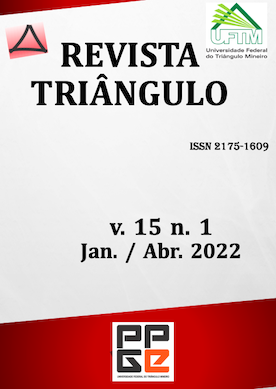O papel da Filosofia na formação do(a) cientista da Educação
DOI:
https://doi.org/10.18554/rt.v15i1.6027Palavras-chave:
Filosofia, Ciência, PedagogiaResumo
Este artigo se constitui metodologicamente como uma revisão de literatura e tem como objetivo geral evidenciar o papel da Filosofia na formação do pedagogo, o cientista da Educação. Para tanto, parte da seguinte questão central: qual o papel da Filosofia na formação do(a) cientista da Educação? Ancorando-se em uma literatura que concebe a Educação em sua dimensão filosófico-científica, tece considerações importantes acerca do conceito de Educação, Ciência, Filosofia, Pedagogia e Pedagogo. Dentre os seus achados, destaca-se a constatação de que a Filosofia vem sendo inserida nos currículos dos cursos de Pedagogia do Brasil de forma panorâmica e pouco aprofundada, o que repercute, inevitavelmente, no conceito de Educação que prevalecerá entre os pedagogos. Como principal contribuição, a discussão exposta evidencia a importância da inseparabilidade entre Filosofia e Ciência para a formação integral do pedagogo, sobretudo no que diz respeito à compreensão radical do seu objeto de estudo e campo de atuação, defendendo, para tanto, que sem Filosofia, muito facilmente, o pedagogo tenderá a tornar-se um profissional que executa práticas e reproduz teorias, porém, pouco sobre ela pensa.
Referências
BRASIL. Conselho Nacional de Educação (CNE). Resolução CNE/CP Nº 01, de 15 de maio de 2006. Institui Diretrizes Curriculares Nacionais para o Curso de Graduação em Pedagogia, licenciatura. Diário Oficial da União, Brasília, 16 de maio de 2006, Seção 1, p. 11. Disponível em: http://portal.mec.gov.br/cne/arquivos/pdf/rcp01_06.pdf. Acesso em 08 jan. 2022.
FOUCAULT, Michel. Le Souci de la Verite, Magazine Littéraire, n. 207, 1984.
FREIRE, Paulo. Educação como prática de liberdade. 3 ed. Rio de janeiro: Paz e Terra, 1979.
FREIRE, P. Extensão ou comunicação? tradução de Rosisca Darcy de Oliveira ¿ prefácio de Jacques Chonchol . 7. ed. Rio de Janeiro, Paz e Terra, 1983.
GATTI, Bernadete Angelina; NUNES, Mariana Muniz R. Formação de professores para o ensino fundamental: estudo de currículos das licenciaturas em pedagogia, língua portuguesa, matemática e ciências biológicas / Bernardete A. Gatti; Marina Muniz R. NUNES (org.) são Paulo: FCC/DPE, 2009.
LIBÂNEO, José Carlos. Diretrizes Curriculares da Pedagogia: imprecisões teóricas e concepção estreita da formação profissional de educadores. Educ. Soc., Campinas, vol. 27, n. 96 - Especial, out. 2006. Disponível em http://www.cedes.unicamp.br Acesso em: 08 jan. 2022.
LIBÂNEO, José Carlos. Pedagogia e pedagogos: inquietações e buscas. Educar. n. 17, Editora da UFPR, Curitiba, 2001.
PLATÃO. Mênon. Rio de Janeiro-São Paulo, Loyola PUC/Rio, 2001.
PLATÃO. O banquete-Fédon-Sofista-Político. 4. ed. São Paulo, Nova Cultural, 1987.
SARAMAGO, José. Memorial do Convento. Obras Completas. São Paulo: Companhia das Letras, 2014.
SAVIANI, Dermeval. Pedagogia: o espaço da Educação na Universidade. Cadernos de Pesquisa, v. 37. N. 130, jan./abr. 2007.
Downloads
Publicado
Edição
Seção
Licença
Copyright (c) 2022 Revista Triângulo

Este trabalho está licenciado sob uma licença Creative Commons Attribution-NoDerivatives 4.0 International License.
Autores que publicam nesta revista concordam com os seguintes termos: Autores mantém os direitos autorais e concedem à revista o direito de primeira publicação, com o trabalho simultaneamente licenciado sob a Licença Creative Commons Attribution que permite o compartilhamento do trabalho com reconhecimento da autoria e publicação inicial nesta revista.




